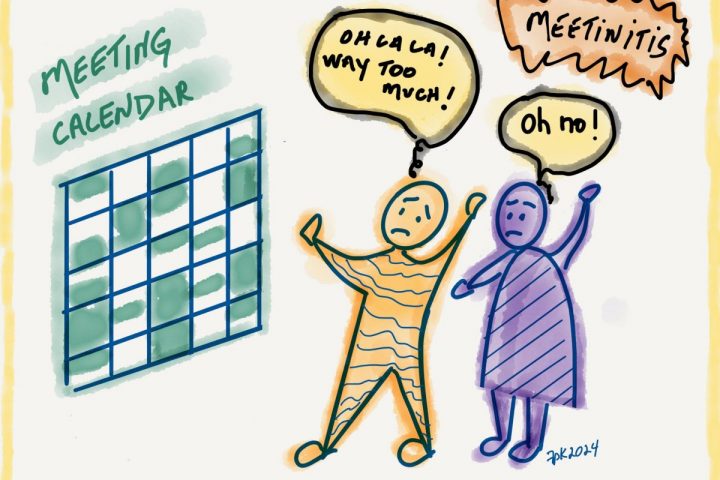 When we put someone in a role in a sociocratic organization, we use a transparent process of selection by consent. At the start, each circle member in turn nominates someone for the role. They give reasons why their nominee is well suited to the qualifications and responsibilities defined in the role description. Then each person in turn has an opportunity to change their nomination, based on what they may have learned from others’ nominations. Next, the facilitator proposes a specific nominee to fill the role, based on reasons given for nominations and changes to nominations.
When we put someone in a role in a sociocratic organization, we use a transparent process of selection by consent. At the start, each circle member in turn nominates someone for the role. They give reasons why their nominee is well suited to the qualifications and responsibilities defined in the role description. Then each person in turn has an opportunity to change their nomination, based on what they may have learned from others’ nominations. Next, the facilitator proposes a specific nominee to fill the role, based on reasons given for nominations and changes to nominations.
After the candidate to fill the role is proposed, the facilitator asks each circle member if they have any objection to that person filling the role. This is where people new to the process may experience discomfort, may have concerns, may want to do something more familiar.
“How could I object out loud in front of the whole group?”
“What if I want to argue more for my nominee?”
And perhaps the most common: “I don’t want to hurt their feelings!”
For some of us, ‘objecting’ to someone filling a role seems very personal. We may think of it as ‘mean’, or ‘rude’, or simply ‘not OK’, even if we cannot articulate why. The action of ‘objecting’ generates mental and sometimes even physical discomfort.
Our perspective shifts when we realize that ‘objections’ in sociocratic selection processes are not personal. Objections are not about some problem or lack in the person, as a person. Objections are about the ability of that person to meet the qualifications and responsibilities of the role, for the benefit of the circle,
The role may require training and experience in operating a specific piece of machinery. If I lack that training and experience, that is not a ‘problem’ with me as a person. It is a fact of what training and experience I do, or do not, have. I am not a better or worse person, in general, because I do or do not have that training and experience. And, in practical terms, even I can understand that I lack essential qualifications for that role!
Objecting to someone filling a role when they lack the qualifications to fill that role is a service to both that person and the circle. The circle needs the role adequately filled. The person selected needs to meet the qualifications and responsibilities of the role. Otherwise we are limiting or reducing our ability to accomplish our aims. At a more personal level, if we are in a role that we are not qualified to fill, that can be an uncomfortable experience, sometimes even a scary one.
An important exception is when we nominate someone for a role in order to build capacity in our circle. Our reasons for nomination will include that we want more circle members to be able to fill that role well. We don’t want to be dependent on the one or few people who already can fill it well. We are nominating someone less qualified, so that they can learn how to fill the role well.
A key cultural shift in sociocratic elections is understanding that objections are not personal. They are not attacks on me, or you, or our best friend – or worst enemy – as individuals, as whole people. Objections are fundamentally related to the ability of our circle and its roles to accomplish our aims, together. It’s nothing personal!



